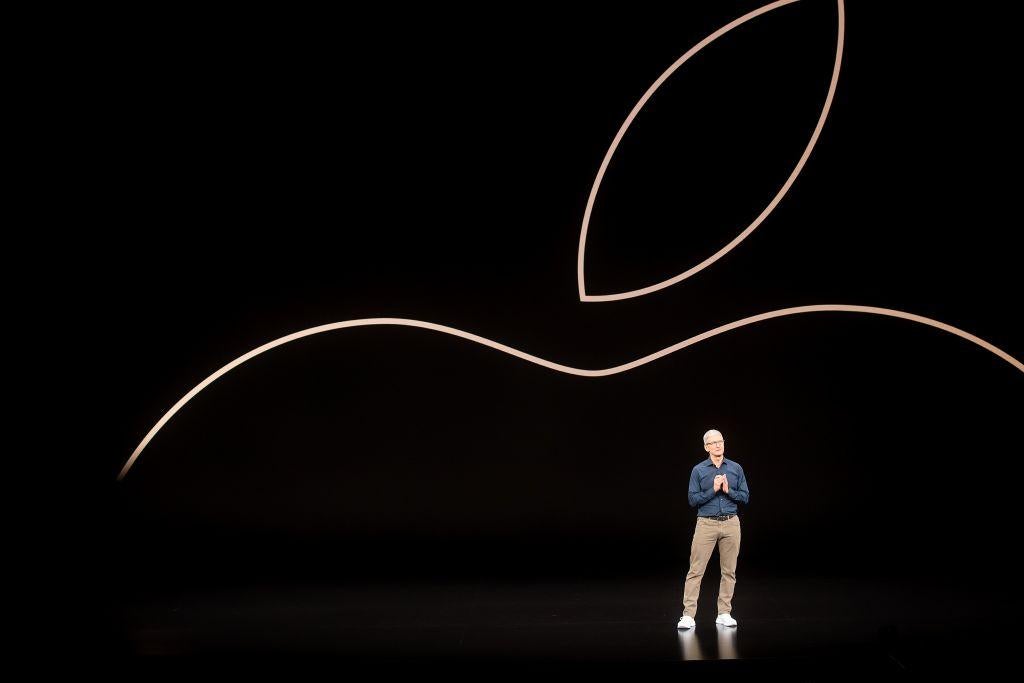Apple TV pulls sex, violence and politics from its shows, highlighting the difficulty of being a tech firm and a content provider
CEO Tim Cook appears to want to play it safe as the company ventures into scripted content

Your support helps us to tell the story
From reproductive rights to climate change to Big Tech, The Independent is on the ground when the story is developing. Whether it's investigating the financials of Elon Musk's pro-Trump PAC or producing our latest documentary, 'The A Word', which shines a light on the American women fighting for reproductive rights, we know how important it is to parse out the facts from the messaging.
At such a critical moment in US history, we need reporters on the ground. Your donation allows us to keep sending journalists to speak to both sides of the story.
The Independent is trusted by Americans across the entire political spectrum. And unlike many other quality news outlets, we choose not to lock Americans out of our reporting and analysis with paywalls. We believe quality journalism should be available to everyone, paid for by those who can afford it.
Your support makes all the difference.The three big players in the streaming industry – Netflix, Amazon Prime and Hulu – have not shied away from controversy in their original programming. In some cases they have arguably courted it (see Netflix’s 13 Reasons Why, Insatiable). As such, they already pose a threat to the likes of HBO, AMC, FX and other more traditional networks trading in the same kind of quality, daring shows for adults that have brought them critical acclaim and Emmy awards.
Apple seems to be taking a curiously different approach, however. The Wall Street Journal reported on Saturday that “the tech giant wants to make scripted shows for streaming, only without violence, politics and risqué story lines.”
Its TV service has been slow to get off the ground, and Apple seems to be unsure what kind of a content provider it wants to be. According to the WSJ, CEO Tim Cook was shown Apple Inc.’s first scripted drama, a Dr Dre semi-biopic called Vital Signs, but was concerned by its scenes of cocaine use, gun crime and mansion-based orgies. He reportedly told Apple Music executive Jimmy Iovine that Apple can’t show this. An M Night Shyamalan series being developed by Apple also faced censorship, crucifixes apparently being removed from a family home setting as the company is wary of wading into religion and politics too.
If the report is correct (The Independent has contacted Apple for comment), this shows the difficulties unique to companies going into the television and film business when they’re best known for, and subsisted by, other products. The world has accepted – without batting an eyelid – that the company that sends you toasters in the mail (Amazon) now also makes your television shows. If Apple TV is successful, where you might go to get your smartphone is also where you’ll go for a portion of your television consumption.
Although one might find this vaguely sinister, the result of capitalism and consumerism run wild, the shifting paradigm in television has so far been quite acceptable. The big three streaming services have come up with bold, uncompromising shows like The Handmaid’s Tale, Black Mirror, Transparent and The Man in the High Castle that don’t feel as though they’ve been subject to boardroom scrutiny.
But this Apple development may be cause for concern. While HBO et al persist solely on the strength of their shows, for Apple – and Amazon – there are other arms of the billion-dollar company to worry about. A hugely controversial show that may alienate an entire demographic, could not only dissuade this demographic from paying for their TV subscription service, but also from buying their other products. “With Apple, you can say, ‘I’m going to punish them by not buying their phone or computer,” former NBC and Fox executive Preston Beckman told the WSJ.
Risk aversion strategies are all very well, but this reported puritanical approach by Apple is a PR disaster. If they continue with it right up to and through launch, the modern viewer – who is not only comfortable with edgy content in television but expects it – may be less than convinced to pay the subscription fee.
Join our commenting forum
Join thought-provoking conversations, follow other Independent readers and see their replies
Comments